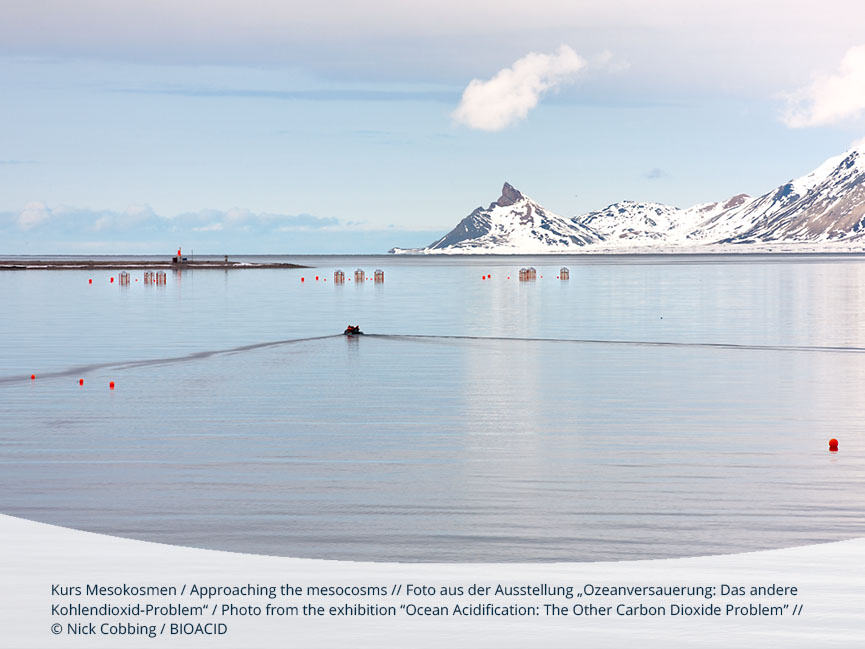
Ocean acidification in the Arctic
Due to their lower water temperatures, Polar seas will be hit first by ocean acidification. Cooler water takes up more carbon dioxide from the atmosphere – while the ocean surface at the equator even releases this greenhouse gas.
Dissolved salt buffers the effect of acidification. But with ice sheets melting, the salinity declines and the sweeter water acidifies even faster. Also, the open water surface grows as ice covers melt and larger areas become available for carbon dioxide uptake.
Food webs in Arctic and Antarctic waters are relatively simple compared to other regions of the planet. Plain structures largely based on key organisms such as the sensible pteropods or the highly specialised Arctic cod are more vulnerable than species-rich systems where several organisms play similar roles and can replace each other more easily.
According to BIOACID studies, Arctic pteropods are especially threatened by ocean acidification in winter. The water is even cooler and even more acidified than at other seasons, and because the organisms rest and reduce their metabolism in this period, they are less able to counteract changes in their environment. Since most pteropods spend the winter in this way at an early development state, their populations might decline rapidly.
Biologists at Alfred Wegener Institute observed that Atlantic cod moves north due to rising temperatures and puts the native Polar cod under pressure. On short term, this might increase fishing yields, but in the long run, scientists do not expect the Atlantic cod to prevail in this region.
Ocean acidification, rising temperatures, ice melt as well as freshening of surface waters are about to alter the Arctic ecosystem. As many people in this region depend on the ocean, changes might also have more direct consequences for economy and society there.
In this video portrait, Dr. Silke Lischka, marine biologist at GEOMAR, explains why pteropods in the Arctic are especially threatened by ocean acidification.
LEARN MORE: What is ocean acidification? // Plankton // Cold-water corals // Tropical corals // Society impacts